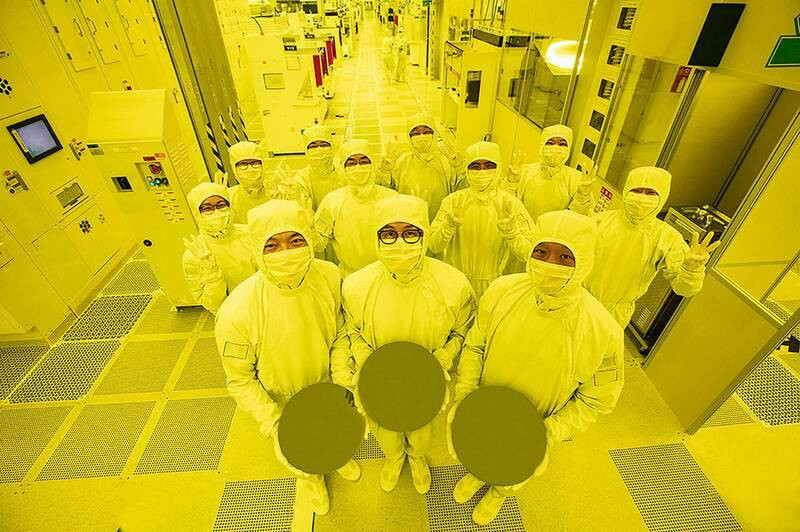China launched "true national treatment" to attract foreign chip experts.
(Reuters file photo)
[Compiled by Wei Guojin/Taipei Report] With the United States increasing its technology export controls to China, China has vowed to use the power of the whole country to achieve the goal of self-sufficiency in chips.
Liu He, the top economic official of Chinese President Xi Jinping, said at a symposium on the eve of leaving office that China will formulate policies to improve the shortage of chip talents in China and give foreign experts "true national treatment".
By 2024, China's semiconductor industry will need nearly 800,000 professionals, more than one-third of the country's talent supply.
The South China Morning Post reported that Liu He said at a seminar on the development of integrated circuit (integrated circuit) enterprises on the 2nd that China must give full play to the "advantages of the new nationwide system and make good use of both the government and the market" to develop the semiconductor industry.
Liu He's remarks show that Beijing is waging a protracted chip war with the United States.
Please read on...
He said that the chip industry "is the core hub of the modern industrial system, which is related to national security and the process of Chinese-style modernization"; "General Secretary Xi Jinping attaches great importance to the development of the integrated circuit industry and has issued important instructions on many occasions. in-depth implementation."
He added that the Chinese government will set "pragmatic development goals" to help companies solve difficulties, "play a good organizational role in areas where the market fails, guide long-term investment, give equal preferential policies to domestic talents, and give real nationals to foreign experts." Remuneration, help enterprises to speed up the introduction and training of talents."
The report pointed out that by 2024, China's semiconductor industry will need nearly 800,000 professionals, more than one-third of the local talent supply.
Xinhua's summary of Liu's speech did not directly mention U.S. export controls, but the timing of Liu's speech came as Beijing expressed concern about a U.S.-led coalition aimed at thwarting China's chip technology development, the report said.
Chinese officials have publicly called on Japan, South Korea and the Netherlands to help stabilize the chip supply chain.
Washington has persuaded Japan and the Netherlands to join the export control measures for Chinese chip equipment, and the Chip 4 alliance led by the United States and including Japan, South Korea and Taiwan is gradually taking shape.
At the same time, Washington emphasized that chip manufacturers receiving US government subsidies will not be allowed to invest in advanced manufacturing equipment in China for up to 10 years.
In October last year, the Biden administration also restricted American citizens and green card holders from working in China's advanced chip companies.
The report said that due to China's difficulty in obtaining advanced chips and related equipment and materials required for smartphones, Chinese companies have instead invested heavily in mature process chips required for automobiles and home appliances.
Local governments in China, from Shenzhen to Shanghai, are rolling out various semiconductor development incentive programs, and Suzhou, which is adjacent to Shanghai, has set a goal of increasing semiconductor production by 20% this year.
Grasp the pulse of the economy with one hand I subscribe to Free Finance Youtube channel
Already added friends, thank you
Welcome to 【Free Finance】
feel good
Already liked it, thank you.
related news
